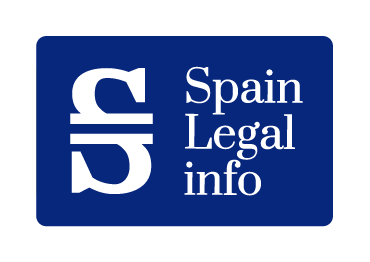Spain Visa Process for Refugees
Navigating the visa process is an important step for refugees seeking to relocate to Spain. Understanding the Spain visa process and who qualifies as a refugee is crucial to ensure a smooth and successful application.
Important links:
Ministry of Interior Guide for applicants of international protection
Understanding the Spain Visa Process
The Spain visa process for refugees involves several stages and requirements. It is designed to assess the eligibility of individuals seeking refuge in Spain and provide them with the necessary documentation to legally reside in the country. The process typically includes the submission of various documents, an interview, and thorough screening procedures.
Who Qualifies as a Refugee
In order to qualify as a refugee in Spain, individuals must meet certain criteria outlined by international and national laws. According to the United Nations Refugee Agency (UNHCR), a refugee is defined as someone who has fled their home country due to a well-founded fear of persecution based on factors such as race, religion, nationality, political opinion, or membership in a particular social group. These individuals are unable or unwilling to seek protection from their home country and require international assistance.
Spain, as a signatory to the 1951 Convention relating to the Status of Refugees, provides protection to individuals who meet the criteria for refugee status. It is important for applicants to provide evidence and documentation that supports their claim for refugee status during the visa application process.
Types of Visas for Refugees
Here are the three main types of visas for refugees in Spain:
Humanitarian Visas
Humanitarian visas are granted to individuals who have been displaced from their home countries due to armed conflicts, natural disasters, or other extraordinary circumstances. These visas are designed to provide temporary protection to those in urgent need.
Refugee Status Visas
Refugee status visas are granted to individuals who meet the international criteria for refugee status as defined by the United Nations Refugee Agency (UNHCR). These visas are intended for individuals who have a well-founded fear of persecution in their home country due to their race, religion, nationality, political opinion, or membership in a particular social group.
Temporary Protection Visas
Temporary protection visas are granted to individuals who are unable to return to their home countries due to ongoing armed conflicts, generalized violence, or other exceptional circumstances. These visas provide temporary legal status and protection for a specified period of time.
Temporary protection visas allow individuals to reside in Spain for the duration of the specified period, during which they may be eligible for certain rights and benefits, such as access to healthcare and education. The renewal or extension of temporary protection visas is contingent upon the prevailing conditions in the applicant’s home country.
Required Documents and Application Process
To apply for a Spain visa as a refugee, certain documents are required to support your application. It’s important to gather all the necessary paperwork and follow the correct application process to ensure a smooth and successful visa application. Here are the key aspects to consider:
Proof of Identity and Nationality
When applying for a Spain visa as a refugee, you need to provide proof of your identity and nationality. This can typically be done with a valid passport or other travel documents. Make sure your passport is valid for the duration of your intended stay in Spain. If you do not have a passport or it has expired, contact the appropriate authorities or organizations that assist refugees to obtain the necessary travel documents.
Supporting Documentation
In addition to proof of identity and nationality, you will need to provide supporting documentation to substantiate your refugee status and the purpose of your stay in Spain. This may include:
- Refugee status documents or certificates issued by the relevant authorities.
- Evidence of your need for protection, such as documentation from the UNHCR (United Nations High Commissioner for Refugees) or other recognized refugee organizations.
- Any documents related to your family members who may be accompanying you, such as marriage certificates or birth certificates.
- Proof of accommodation arrangements in Spain, such as a lease agreement or a letter of invitation from a host.
- Financial documentation to demonstrate your ability to support yourself during your stay in Spain, such as bank statements or sponsorship letters.
Make sure to check the specific requirements of the Spanish authorities or the embassy/consulate where you will be submitting your application. They may have additional document requirements or specific forms that need to be completed.
Interview and Application Submission
Once you have gathered all the required documents, you will need to schedule an interview at the appropriate embassy or consulate. The interview is an opportunity for you to provide additional information and clarify any details related to your application. It is important to be prepared for the interview by reviewing your application and having all necessary documents readily available.
During the interview, you may be asked questions about your refugee status, your reasons for seeking asylum in Spain, and your plans for integration into Spanish society. Answer honestly and provide any supporting evidence as requested.
Eligibility Criteria and Considerations
When it comes to the Spain visa process for refugees, there are specific eligibility criteria and considerations that need to be taken into account. These factors play a crucial role in determining whether an individual qualifies for a visa. Here are three key aspects to consider:
Meeting the Definition of a Refugee
To be eligible for a refugee visa in Spain, individuals must meet the legal definition of a refugee as outlined in international and national laws. The definition typically includes individuals who are outside their home country due to a well-founded fear of persecution based on factors such as race, religion, nationality, political opinion, or membership in a particular social group. It’s important to provide sufficient evidence and documentation to support the refugee claim during the visa application process.
Resettlement Programs and Agreements
Spain participates in various resettlement programs and agreements aimed at providing protection and assistance to refugees. These programs are often coordinated with international organizations and include specific quotas for accepting refugees. Eligibility for these programs may depend on factors such as the applicant’s country of origin, vulnerability, and the availability of resettlement slots. It’s essential to stay informed about the specific programs and agreements in place and understand the requirements and procedures associated with them.
Financial, Health, and Security Checks
As part of the visa application process, refugees are typically subject to financial, health, and security checks. These checks are conducted to ensure that the applicants meet the necessary requirements and pose no threat to public health, national security, or public order. Financial checks may assess the applicant’s ability to support themselves or verify sponsorship arrangements, while health checks may involve medical examinations to ensure the applicant does not have any communicable diseases. Security checks are carried out to assess any potential risks associated with the applicant’s background.
It’s important to note that the eligibility criteria and considerations for refugee visas may vary depending on the specific circumstances and the policies in place at the time of the application. It is advisable to consult with legal aid and support organizations, as well as government programs and initiatives, for up-to-date information and guidance throughout the visa process. For more information on assistance and resources available for refugees in Spain, refer to our article on Integration and Settlement Services.
Assistance and Resources for Refugees
Navigating the visa process can be complex, especially for refugees seeking to relocate to Spain. Fortunately, there are various organizations, government programs, and integration services available to provide support and assistance throughout the process.
Legal Aid and Support Organizations
Legal aid and support organizations play a crucial role in assisting refugees with their visa applications. These organizations provide invaluable guidance, advice, and legal representation to ensure that refugees understand their rights and have access to the necessary resources.
Some well-known legal aid and support organizations that specialize in refugee assistance in Spain include:
| Organization Name | Description |
|---|---|
| Spanish Commission for Refugee Aid (CEAR) | A renowned organization that offers legal assistance, social support, and advocacy for refugees in Spain. CEAR collaborates with various stakeholders to protect the rights of refugees and facilitate their integration into Spanish society. |
| Spanish Red Cross | The Spanish Red Cross provides comprehensive support to refugees, including legal aid, psychosocial assistance, and humanitarian aid. They work closely with government agencies and other organizations to ensure the well-being and successful integration of refugees. |
| Save the Children Spain | This organization focuses on the well-being and protection of refugee children. They provide legal assistance, education, and support services to help these vulnerable individuals navigate the visa process and build a brighter future in Spain. |
Government Programs and Initiatives
The Spanish government has implemented several programs and initiatives to support refugees throughout their visa application process and beyond. These programs aim to facilitate integration, provide social assistance, and ensure the well-being of refugees in Spain.
Some notable government programs and initiatives for refugee support include:
| Program/Initiative | Description |
|---|---|
| Spanish Refugee Resettlement Program | This program is designed to provide protection and support to refugees who have been displaced from their home countries. It offers accommodation, language training, healthcare, and employment assistance to help refugees rebuild their lives in Spain. |
| Integration and Social Services | The Spanish government, in collaboration with local authorities, provides a range of integration and social services for refugees. These services include language courses, vocational training, healthcare access, and social welfare support, all aimed at facilitating the integration process. |
| Employment Assistance | To help refugees find employment opportunities, the Spanish government collaborates with employment agencies and organizations to offer job placement services, vocational training, and support in accessing the labor market. |
Integration and Settlement Services
Integration and settlement services are crucial for refugees seeking to establish a new life in Spain. These services provide practical assistance, guidance, and support to refugees as they navigate the challenges of settling in a new country.
Key integration and settlement services available for refugees in Spain include:
| Service | Description |
|---|---|
| Language Courses | Language courses are provided to help refugees learn Spanish, which is essential for effective communication and integration into Spanish society. These courses are often offered free of charge or at a reduced cost. |
| Cultural Orientation | Cultural orientation programs aim to familiarize refugees with Spanish culture, traditions, and customs. These programs help refugees understand societal norms, navigate day-to-day life, and foster a sense of belonging in their new community. |
| Housing Assistance | Many organizations and government agencies provide support in finding suitable housing options for refugees. This assistance may include temporary accommodation, rental subsidies, or guidance on accessing affordable housing programs. |
| Healthcare Access | Access to healthcare services is vital for the well-being of refugees. Integration services often provide information and assistance in accessing healthcare facilities, enrolling in health insurance programs, and understanding the Spanish healthcare system. |
Spain Visa Process for Refugees
Navigating the visa process as a refugee can be a complex and challenging journey. This section aims to provide an understanding of the Spain visa process specifically tailored for refugees. It covers the different types of visas available, the required documents and application process, as well as eligibility criteria and considerations.
Understanding the Spain Visa Process
The Spain visa process for refugees involves several steps and requirements. It is important to have a clear understanding of the process to ensure a smooth application experience. The process includes:
- Determining eligibility as a refugee.
- Identifying the appropriate visa category.
- Gathering the necessary documents.
- Completing the application form.
- Scheduling an interview (if required).
- Submitting the application and paying the applicable fees.
- Waiting for the visa decision.



